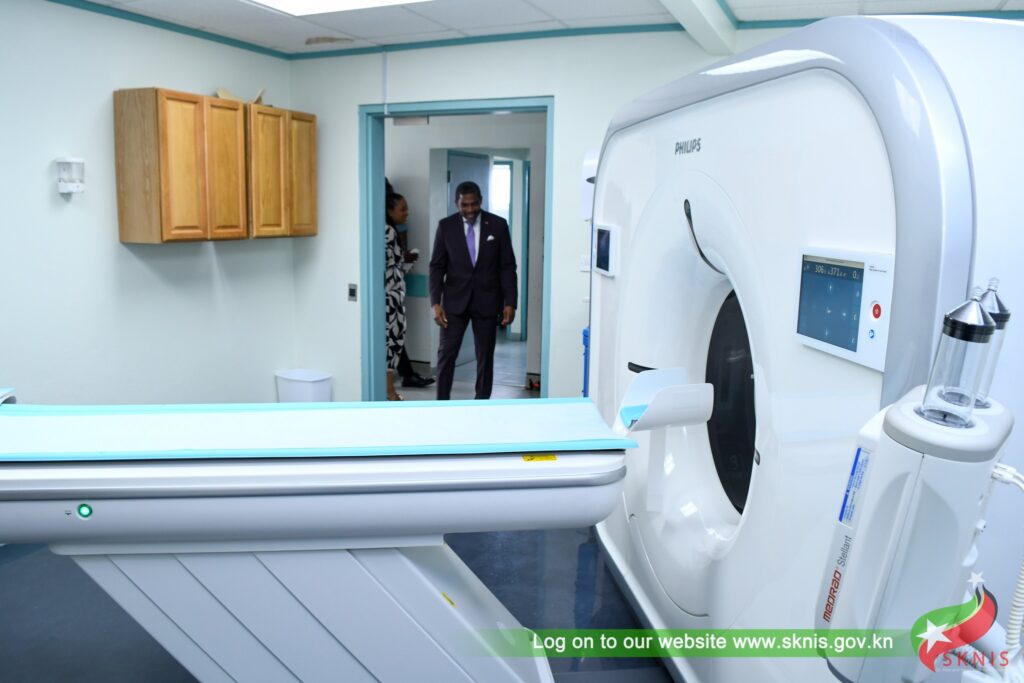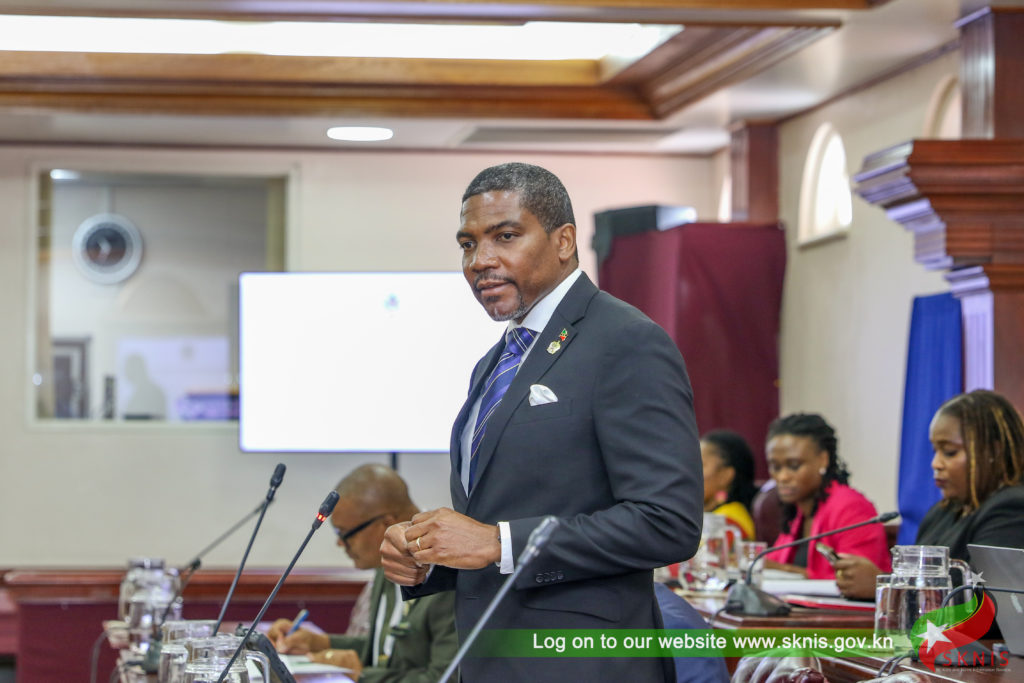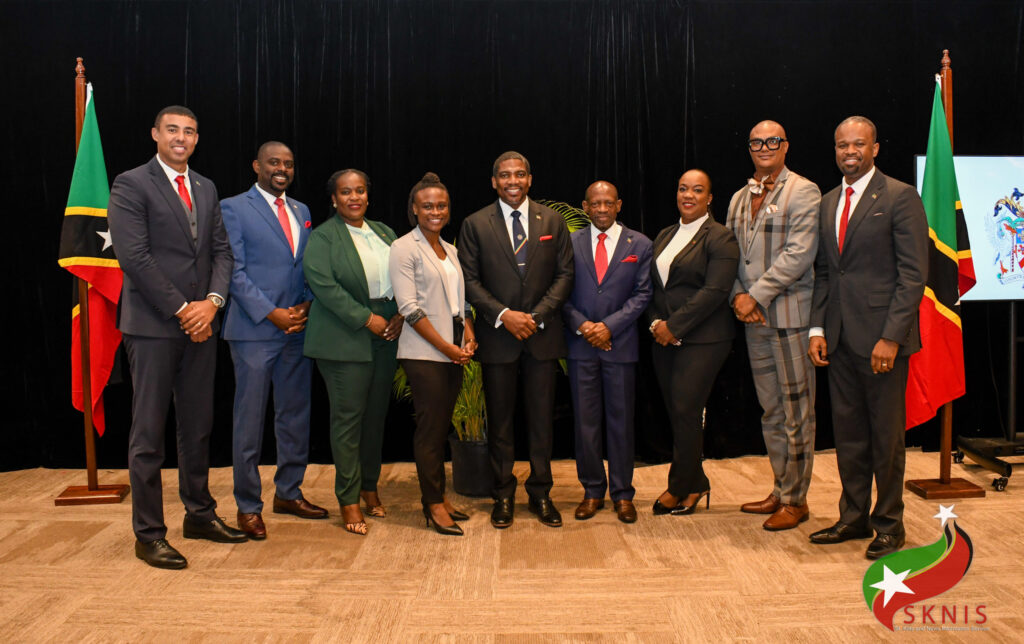Basseterre, Saint Kitts, April 28, 2025 (PMO) – April 30, 2025, marks a historic milestone in the life of the Government of St. Kitts and Nevis as it officially reaches the halfway point of its constitutional term—998 days since Prime Minister the Honourable Dr. Terrance Drew and the St. Kitts-Nevis Labour Party-led administration took office. This midterm moment offers the nation an opportunity to reflect on the transformative journey undertaken since August 6, 2022. It is a journey defined by action, bold decisions, and a clear, forward-thinking vision—to modernize and reposition the Federation as a Sustainable Island State.
The Government’s performance over the past two and a half years stands as a powerful testament to what focused leadership and strategic policy execution can achieve. From the outset, the administration wasted no time in asserting its commitment to national development. Within the first week of taking office, the Prime Minister took three major and decisive actions that laid the foundation for a national reset following the global COVID-19 pandemic. Borders were reopened to restore economic lifelines and revive tourism; Tuition was waived at the Clarence Fitzroy Bryant College (CFBC), signaling the administration’s commitment to accessible education for all; and the Children’s Medical Fund was established, ensuring that children with critical medical needs could receive lifesaving care overseas. These immediate interventions under the umbrella of the ‘Post-COVID Reset’ showed the country, and the world, that this government was serious about Powering Progress.
Since then, the accomplishments of the Drew administration have extended across every major sector of governance. Under the first pillar—Jobs and the Economy—the Government has enacted sweeping changes to stimulate economic activity and improve the livelihoods of all citizens. Corporate income tax was slashed from 33% to 25%, creating a more competitive business climate. The minimum wage was increased to $430 per week, with a further raise to $500 scheduled for July 2025. Recognizing the importance of financial independence, the government launched a $1,000 savings account programme for citizens, combined with a national financial education initiative. Small business owners received a critical boost through a $20,000 COVID-recovery loan and the $5,000 40/40 Booster Grant Programme. The government’s digital transformation strategy has also been rolled out, streamlining access to services and promoting transparency. Notably, VAT was reduced from 17% to 13% for the first half of 2025, offering direct relief to households and consumers. These policies together reflect a government committed not just to recovery, but to economic empowerment and transformation.
The healthcare sector has equally witnessed unprecedented investment. In addition to early wins like securing an MRI machine and Children’s Medical Fund, the government settled over EC$2 million in longstanding medical supply debt and invested in the training of over 250 healthcare professionals in advanced life support systems. The installation of new cataract surgery equipment and the return of 24/7 doctor services at Pogson Medical Centre further strengthened primary healthcare access. Moreover, through careful stewardship, St. Kitts and Nevis has been recognized for exceptional child health outcomes, with zero deaths recorded between ages one and four in the year 2022—a feat rarely achieved globally. Renovations to JNF Hospital, including the roof, water system, and lobby, have restored dignity to the nation’s flagship medical institution.

On the housing and social protection front, the Drew-led administration has ushered in a new era of homeownership and household security. The Smart Housing Programme was launched to construct climate-resilient, energy-efficient homes for working families. The landmark Budget Boost Wallet introduced a $250 monthly transfer to workers earning less than $5,000, and social safety nets were restructured to uplift the vulnerable. The Poverty Alleviation Programme (PAP) evolved into LIFT—the Livelihood Improvement for Family Transformation Programme—targeting not just relief, but long-term empowerment. Arrears related to electricity, water, and housing were reset, and penalties were eliminated under a nationally coordinated Independence RESET campaign. In a further show of care for the elderly, the government expanded its Seniors Daycare Programme and hosted the inaugural Seniors Prom. Social security pensions were increased from $430 to $500, and funeral grants were raised from $2,000 to $3,000.
Education and youth development have been central to the administration’s vision of national transformation. Beyond free CFBC tuition and back-to-school stipends, the government reduced student loan interest rates from 9% to 5% and launched the Graduate Refinance Credit of $15,000 to help recent graduates settle debts. The Youth Rising Higher Programme provided debt forgiveness for hundreds of young professionals. The STEAM initiative—emphasizing science, technology, engineering, arts, and mathematics—was introduced in primary schools, and scholarships were extended through MOUs with institutions such as Southern University in the United States. Security upgrades, infrastructural repairs, and bathroom renovations across schools have improved the learning environment nationwide.
Under the governance pillar, the Drew administration has passed more than 30 transformative pieces of legislation thus far. These include the Anti-Corruption Act, Freedom of Information (Amendment) Act, Whistleblower Protection Act, and the Integrity in Public Life (Amendment) Act. The government established both the Joint Constitutional Review Committee and the Justice Reform Committee, demonstrating its commitment to transparency, accountability, and the modernization of the justice system. Pension justice was delivered to thousands of public servants, including post-2012 hires and retired Government Auxiliary Employees, who are now assured of their gratuities and pension entitlements.

In sports and entertainment, the government officially launched the Department of Creative Economy, recognizing culture as a viable sector of economic growth. Renovations to the Kim Collins Athletic Stadium and Halfway Tree Sporting Facility have started, and ground was broken on a new football stadium in Conaree, which is set to be opened this week. Workshops in music, drama, and visual arts are now regularly hosted by the Department of Creative Economy, offering young people positive outlets and marketable skills. Major national celebrations, including Sugar Mas, were successfully restored to pre-pandemic glory.
The government’s commitment to environmental resilience and food security is evident in a series of groundbreaking actions. These include the commissioning of a new potable water well in Cayon, the construction of a solar-powered desalination plant with support from the United Arab Emirates, and the implementation of the largest solar photovoltaic and battery storage project in the Eastern Caribbean. Additionally, 35 new greenhouses have been developed under the Greenhouse Village Project, while recycling programs have been introduced in schools to raise ecological awareness from an early age.
Prime Minister Dr. Terrance Drew, reflecting on the government’s accomplishments thus far, remarked, “From the very beginning, our administration has been committed to transforming St. Kitts and Nevis into a model of sustainability and resilience. The progress we’ve made in these 998 days is a testament to our dedication to the people and the principles of the Sustainable Island State Agenda.”
The Prime Minister also extended commendations to his Cabinet colleagues for their dedication, discipline, and innovation across their respective portfolios. “I am proud of each minister who has taken their responsibility seriously, who wakes up each day determined to improve the lives of the people they serve,” he said.
As the government begins the second half of its constitutional mandate, it does so with an unshakable commitment to Powering Progress. The work will continue, rooted in the tenets of economic empowerment, sustainable development, good governance, and equity for all.
The people of St. Kitts and Nevis are encouraged to remain informed and engaged by visiting www.gov.kn/national-accomplishments, where a full list of achievements is regularly updated.
End



